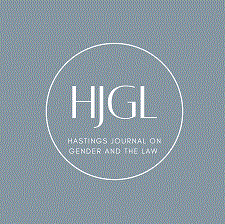
Abstract
Hazing has been a persistent issue in a variety of contexts, institutions, and organizations. In forty-four states, legislatures have passed anti-hazing statutes. However, the law, as a whole, has been insufficient to curtail hazing. This Article analyzes this phenomenon by looking through the lens of historically white-predominant sororities. Among the broad range of organizational dynamic, at play are the pervasive cognitive biases among members. Further, sororities face many challenges to integrating new and better information across the membership. Lastly, the Article analyzes a range of organizational dynamics that play a role in sorority members’ collective decision-making processes.
Recommended Citation
Gregory S. Parks and Sarah J. Spangenburg,
Hazing in “White” Sororities: Explanations at the Organizational-Level,
30 Hastings Women's L.J.
(2019).
Available at: https://repository.uclawsf.edu/hwlj/vol30/iss1/5


